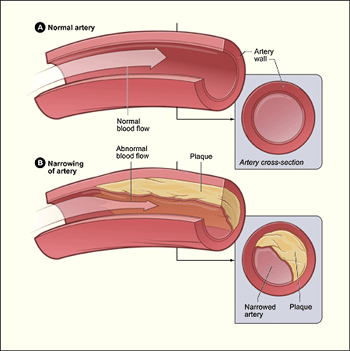Underactive Thyroid Symptoms
Most of us have heard someone say they have an underactive thyroid and that maybe they suffer from some underactive thyroid symptoms. Most peoples first thought is that it has something to do with their ability to lose weight, but it’s important to start thinking much beyond that.
There is a major problem in chalking up an underactive thyroid as being “nothing important.” The fact is, underactive thyroid symptoms can be not only annoying, but also quite serious if not addressed with the right hypothyroidism treatment protocol.
Unfortunately, many people who have had a thyroid test assume that if it came back “normal” then their thyroid is in good shape. This isn’t necessarily true. In fact many of the thyroid hormone tests are inaccurate, leading people to believe their thyroid is fine, when in reality they are suffering from underactive thyroid symptoms without even knowing it.
Your underactive thyroid symptoms are a result of hypothyroidism which is a condition that occurs when the thyroid gland is not producing enough hormones or when those hormones are not being properly delivered to your cells. In any event, all thyroid symptoms should be taken seriously because hypothyroidism is a serious condition that can greatly impact your quality and length of life.
Another word for underactive thyroid symptoms is “hypothyroidism.” What this means is that the thyroid gland is not producing enough hormones.
General Underactive Thyroid Symptoms

- Chronic Constipation
- Depression
- Dry Hair
- Dry Skin
- Fatigue
- Feeling sluggish
- Feeling too cold
- Inability to lose weight
- Sleeping too much
- Slow movements
- Sore muscles
- Unexplained weight gain
- General weakness
- A change in facial expression
- Slow heart beat
Most underactive thyroid symptoms usually develop slowly over time. At first, the symptoms will be quite mild and most people don’t even pay attention. However, eventually hypothyroidism begins to have a far greater effect on your cells as it disrupts your liver, brain, and your entire hormonal system.
While oftentimes you may experience just one of these symptoms, it is not unusual to find that you are suffering from several underactive thyroid symptoms at the same time without ever correlating them to the one cause.
This is especially the case when a thyroid problem is manifesting in a specific body system. In that instance, one may experience a myriad of symptoms all related to the same body system. Below I’ve covered some commonly affected systems.
Reproductive System
In women, oftentimes the most affected is the reproductive system. In fact, women often first develop or first discover they have a problem with their thyroid after pregnancy. This is because of the large fluctuations in your hormones which can intensify and perpetuate many of the thyroid symptoms in women.
For women, this is largely a problem with over-producing of estrogen or under-producing progesterone. Progesterone is a very protective hormone for both mother and baby which also serves to help regulate the thyroid gland. Estrogen on the other hand suppresses the thyroid gland.
Underactive Thyroid Symptoms Connected to the Reproductive System
- Irregular menstrual cycle
- Heavy or prolonged menstrual cycle
- Excessive clotting
- Fibroids
- Fibrocystic breasts (lumpy breast syndrome)
- Breast milk when not lactating or pregnant
- Low or no sex drive
- History of miscarriage
Oftentimes women experience food cravings at different times of their cycle when their hormones are fluctuating. We oftentimes view this as a negative habit; however, this is your body innately trying to tell you what it needs. Oftentimes by following a good hypothyroidism diet to help keep your hormones in balance you can avoid many of the negative effects of these hormone fluctuations.
Cardiac and Circulatory System
Underactive thyroid symptoms can be similar to those of an adrenaline shot or too much epinephrine. Rapid heartbeat, increase pulse rate and heart palpitations can be mistaken for a heart condition when in reality it is a thyroid problem that you are dealing with.
Underactive Thyroid Symptoms Connected to Heart Disease

- Shortness of breath
- Abnormal cardiac function
- Angina
- Congestive heart failure (very rare)
- Decreased cardiac function
- Diastolic hypertension – (high blood pressure)
- Edema or swelling
- Inability to tolerate exercise
- Increased LDL or bad cholesterol
- Slow heart rate – 10 to 12 beats slower than normal
- Worsening of an already diagnosed “heart failure.”
- Hardening of the arteries
- Heart attacks in older patients
Digestive System
Poor digestion depletes the body’s nutrients and therefore can actually promote and perpetuate thyroid problems. Most physicians agree that many disorders of the body seem to start in the intestine. One such example of hypothyroidism’s impact on your digestive system is it’s important role in the manufacturing of many digestive enzymes required to properly digest your food.
Underactive Thyroid Symptoms Connected to Digestive Dysfunction
- Bad breath
- Belching
- Constipation
- Diarrhea
- Difficulty in passing bowel movements
- Digestion difficulties after eating greasy foods or foods high in fat
- Metallic taste in mouth
- Nausea, vomiting, or heart burn that gets temporary relief when treated with OTC meds.
Remember that some of you have suffered from these underactive thyroid symptoms for so many years that you have come to believe the way you feel is normal.
It is not!
Many of the underactive thyroid symptoms such as fatigue and exhaustion are a result of your body’s inability to deliver key thyroid hormones to your cells.
Nervous System
The nervous system is a double edged sword when it comes to your thyroid function. On the one hand, long-term chronic stress can bring on underactive thyroid symptoms, and in turn an underactive thyroid can cause the body to experience high levels of stress. Both promote each other.
Also, when it comes to the body’s nervous system, you can be suffering from these symptoms for years, and never realize the problem are really underactive thyroid symptoms.
Underactive Thyroid Symptoms Connected to the Nervous System
- Reduced sensation
- Peripheral nerve damage
- Memory loss
- Lack of coordination
- Hearing loss
- Dementia
Obviously the underactive thyroid symptoms connected to the nervous system can be very serious. As is often the case, many of these symptoms can be mistaken for other conditions and a misdiagnosis can result.
These severe symptoms are usually found in cases of hypothyroidism that have gone untreated for many years.
Remember that once your underactive thyroid symptoms are recognized for what they really are, and you begin taking the necessary steps to turn it around, you will begin feeling better than you have for a long time. In many cases people begin to feel like a different person once they have been made aware that their symptoms are actually a result of their thyroid, many of which have endured years of suffering.

 When we hear the word hypothyroidism, we usually associate it with the body’s rate of metabolism. Most people assume that if they aren’t having a problem with weight loss or weight gain, then their thyroid gland is working properly. But, weight loss or gain, while certainly a factor in dealing with the thyroid gland, is just one of dozens of symptoms of thyroid problems.
When we hear the word hypothyroidism, we usually associate it with the body’s rate of metabolism. Most people assume that if they aren’t having a problem with weight loss or weight gain, then their thyroid gland is working properly. But, weight loss or gain, while certainly a factor in dealing with the thyroid gland, is just one of dozens of symptoms of thyroid problems.


